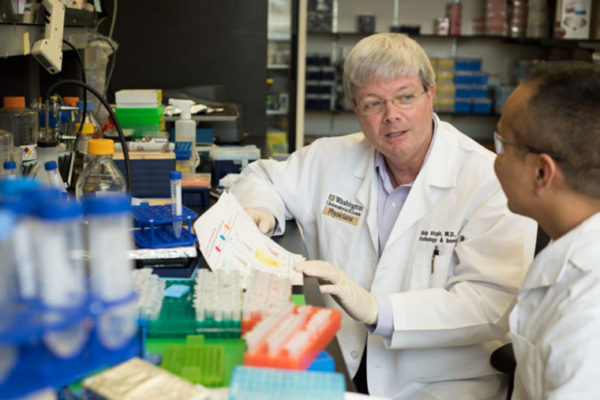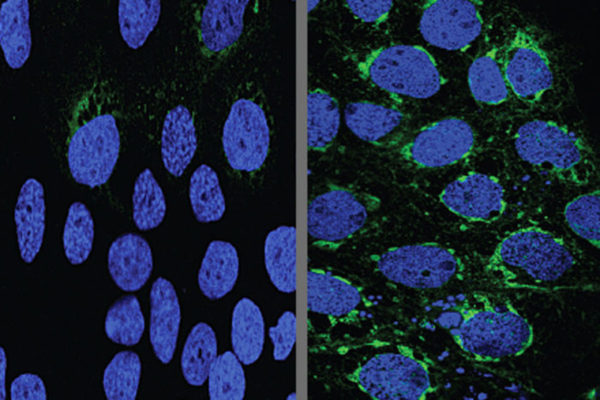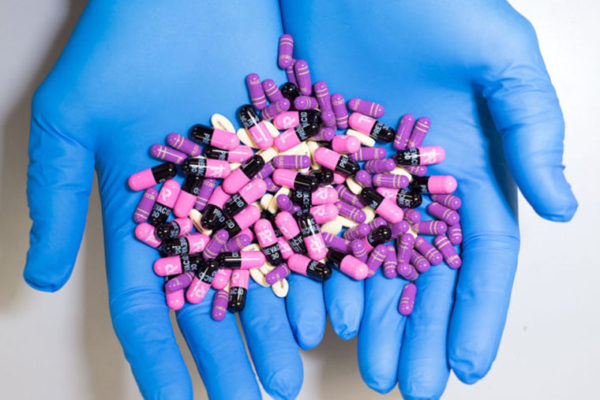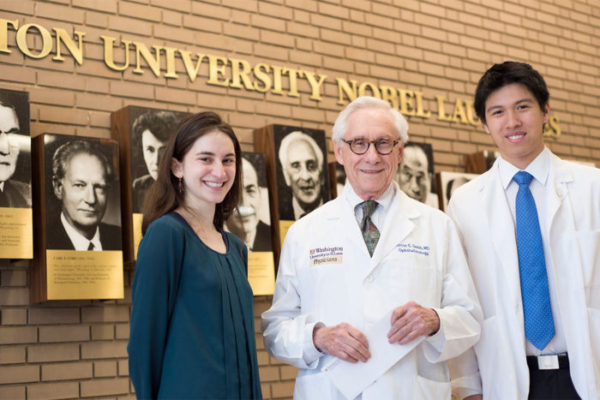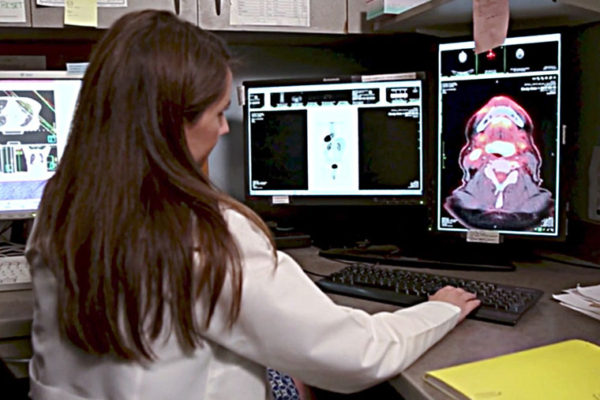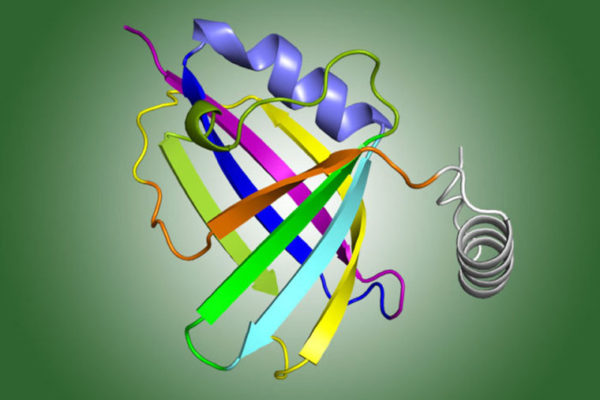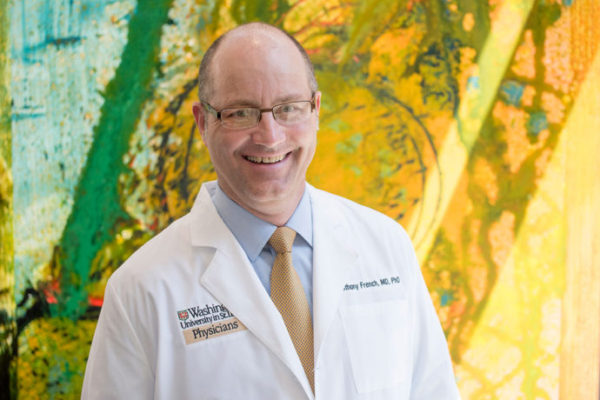Type 1 diabetes risk linked to intestinal viruses
A new study led by the School of Medicine has found that viruses in the intestines may affect a person’s chance of developing Type 1 diabetes. Children who carried a specific virus belonging to the Circoviridae family were less likely to head down the path toward diabetes.
Malaria drug protects fetuses from Zika infection
Studying pregnant mice, researchers at the School of Medicine found that Zika virus manipulates the body’s normal barrier to infection. They also found that a malaria drug, hydroxychloroquine, interferes with this process, protecting the fetus from viral infection.
Colonna joins Cure Alzheimer’s Fund research consortium
Marco Colonna, MD, the Robert Rock Belliveau, MD, Professor of Pathology at Washington University School of Medicine in St. Louis, has been invited to join Cure Alzheimer’s Fund’s research consortium.
Bagnall honored with McKnight Scholar Award
Martha Bagnall, an assistant professor of neuroscience at Washington University School of Medicine in St. Louis, has been named a McKnight Scholar by the McKnight Endowment Fund for Neuroscience.
Popular heartburn drugs linked to higher death risk
Popular heartburn drugs called proton pump inhibitors (PPIs) have been linked to a variety of health problems, including serious kidney damage, bone fractures and dementia. Now, a new study from Washington University School of Medicine in St. Louis shows that longtime use of the drugs also is associated with an increased risk of death.
Medical students receive research fellowship, essay award
Two students at Washington University School of Medicine in St. Louis have received accolades for research and essay writing from the Alpha Omega Alpha National Honor Medical Society.
Carpenter honored by geriatric emergency medicine society
Christopher Carpenter, MD, an associate professor of emergency medicine at Washington University School of Medicine in St. Louis, has been awarded the 2017 Gerson Sanders award by the Academy of Geriatric Emergency Medicine.
Siteman Cancer Center opens north St. Louis County location
Siteman Cancer Center will begin seeing patients July 1 at its newest satellite location, Christian Hospital in north St. Louis County. Siteman Cancer Center is based at Barnes-Jewish Hospital and Washington University School of Medicine, and the new location is Siteman’s fifth in the St. Louis area.
New clues found to common respiratory virus
Mapping the molecular structure of an RSV protein that interferes with the body’s ability to fight off the virus, researchers at the School of Medicine have found clues to how RSV causes disease. This could potentially lead to a vaccine or treatment.
French named director of pediatric rheumatology division
Anthony R. French, MD, PhD, an associate professor of pediatrics, has been named director of the Division of Pediatric Rheumatology at Washington University School of Medicine in St. Louis.
View More Stories
